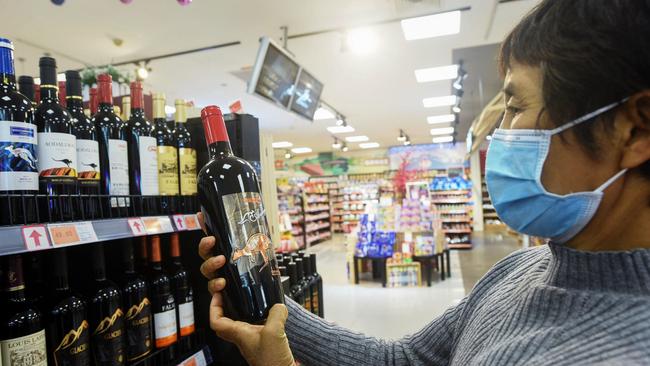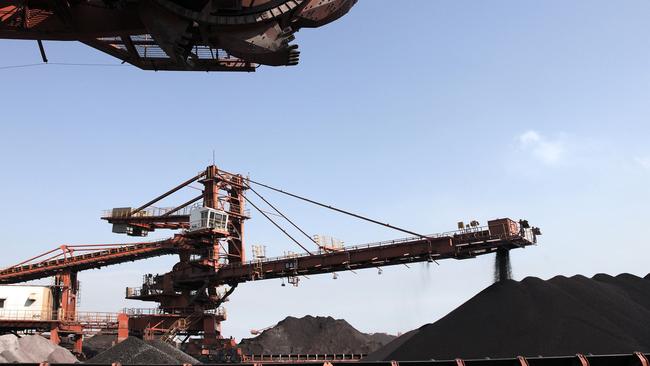
Arguably it started when then prime minister Kevin Rudd made his famous 2008 speech to Beijing university in Mandarin, raising human rights issues. Then followed a series of events where Australia found China’s actions unacceptable and China found our criticisms also unacceptable.
China had become different to the China that we had grown close to as we built up our trade. On the other side, in those years Australia’s relationship with China was concentrated on issues of trade and mutual advantage.
The China - Australia dispute was further escalated when the US put great pressure on Australia to abandon Huawei 5G and other technologies even though they were superior to their rivals.
The US stepped up its China criticism and under Donald Trump imposed tariffs and restrictions. We joined the US and later Japan in issues related to access to the South China Sea
China continually accused Australia of being a puppet of the US and the American “cat’s paw”.
Then China went on the attack and imposed a whole series of bans or restrictions on Australian wine, beef, cotton, timber, coal and many other products.
At this point the China - Australia trade war breaks new global ground, via series of strange contradictions:
* China still needed our banned goods so turned to many other countries led by, of all countries, the US. China now reports that the US has covered much of the gap created by the China bans on Australia. American exports of wine, beef, cotton, timber and coal have increased over the last year. Indeed, overall, Chinese exports to the US have jumped sharply. There is no criticism of the US for filling the gap but it does show we are on our own in this area.
* Australia has been active in finding replacement markets but very often, when we exported to parts of Asia, our commodities actually ended up in China, with the traders taking a nice profit. However we have also developed new markets and if ever the Chinese dismantle some of the bans we will not be as dependent on them.
* China never stopped Australian exports of iron ore and the combination of the Vale Brazilian production cutbacks, and strong China demand, caused a sharp rise in the price. The increase in iron ore revenue from China covered most of the revenue loss from the bans of other products. China is working desperately to lessen dependence on Australian iron ore and will be greatly helped next year if Vale returns to full production.
That’s when Australia will start to feel the full impact of the bans which is why, until the vaccination situation deteriorated, Prime Minister Scott Morrison was being urged to go to the polls in November.

* There is almost no contact between Australia and China at a government level. By contrast, despite its anti-China tariffs, clamps and rhetoric, there has been talks between the US Biden administration and China. They made little progress but at least they took place. Almost all other countries in the region have found a way to accommodate the China situation because they are not totally confident that the US will come to their aid should hostilities break out.
* China has become a global leader in certain aspects of technology and Australia, by cutting back our scientific links with China, has really no idea what is happening in the Middle Kingdom. This is particularly important in defence issues.
* Modelling shows that our Joint Strike Fighter / F-35 is no match for the fifth generation Chinese aircraft.
We are in the process of spending between $120bn and $150bn on a series of submarines that are based on lead acid batteries. China is the world leader in harnessing molten salt-cooled nuclear power to drive ships and submarines. It has linked the heat created into a so-called Integrated Electrical Maritime Propulsion system. This means that if they are successful -- and they are pouring untold billions into the project -- they will transform seagoing mobility because the technology aims to go from heat to power without a conventional generating system.
The submarines and other vessels so created will make our lead acid battery thrust a pure waste of money. None of us know just how far the Chinese have progressed but they have erected an enormous ship/submarine building capacity under a roof so it can’t be seen from the air.
* If the Chinese felt that the trade measures would bring Australia to heel they were sadly mistaken. The attitude of Australians towards China has swung from being very favourable to being most unfavourable. The anti-China feeling has multiplied to the extent that the pro-China policies of two or three years ago are not marketable in a current environment.
I do not have any magical solution but it is rare for a small country with inadequate defences to be alone in a trade war where its defence partner is an important beneficiary. Almost all our regional neighbours are finding a way to deal with China.
But China also has a problem. What they have done to Australia makes many countries fearful of making the “Australian mistake” and becoming too dependent on China for trade and finance.








Trade wars or skirmishes have been on the world stage for centuries. But surely the Australia - China encounter has few parallels.